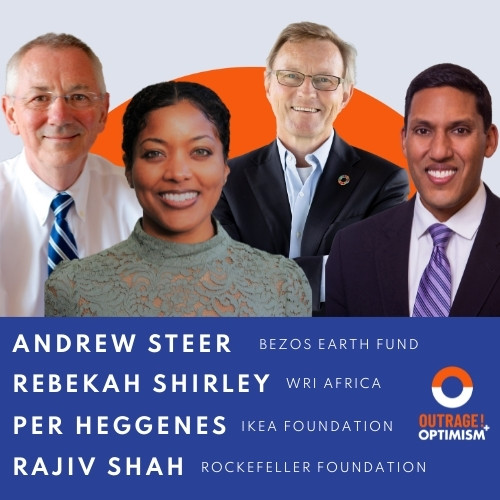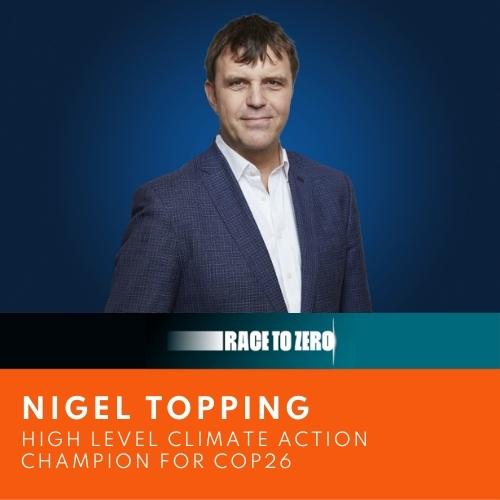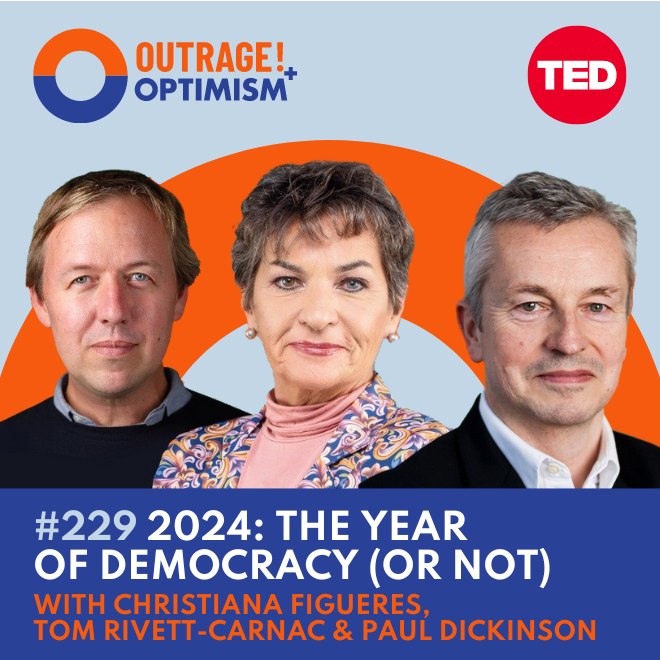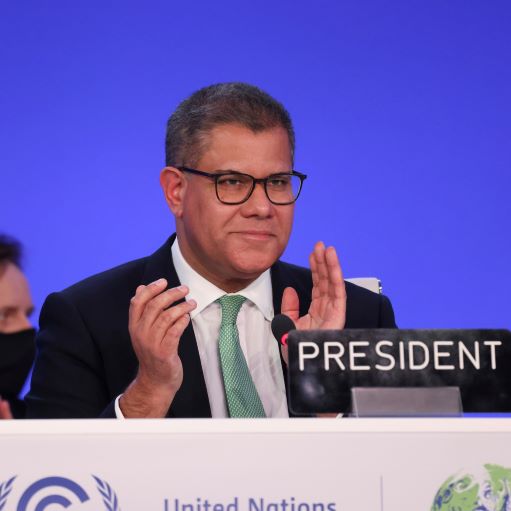91: The Race to Zero! Road to COP26
Welcome to the first episode of our new Race To Zero series!
About this episode
Welcome to the first episode of our new Race To Zero series!
With COP26 as the vital milestone for climate action in November 2021, the promises and pledges made by governments must be converted into meaningful action beginning today. We know the EU, the UK and many other countries have net zero pledges but can they achieve them without a global collective effort?
And it’s not just up to governments – history has shown that political actors need the real economy to place wind in their sails. So with everything on the line and the clock ticking, the Race to Zero has no separation between winners and losers, and failure is NOT an option.
Joined this week by Rt Hon Alok Sharma MP, President-Designate of COP26, Patricia Espinosa, Executive Secretary of UNFCCC, Mary Anne Hitt, National Director of Campaigns for The Sierra Club, and Nigel Topping, High Level Climate Action Champion for COP26, we get a first hand look at what is at stake, who is stepping up, and how everyone can join the race to a better future.
And we’ll find out why COP26 is not just a 2 week event in November, but a race that has already begun.
Watch
Full Transcript
Transcript generated by AI. While we aim for accuracy, errors may still occur. Please refer to the episode’s audio for the definitive version
Christiana Figueres: [00:00:00] So, listeners, this is Race to Zero, a different kind of Outrage + Optimism, and therefore we have different music. Now, guys. Have you heard the new music?
Tom Rivett-Carnac: Clay hasn't let me hear it actually. He said, I'll hear it when listeners hear it.
Paul Dickinson: I've heard it. It's absolutely brilliant. Listen up. Here we go. Race to Zero. Buckle up.
Tom Rivett-Carnac: Hello and welcome to Outrage + Optimism, I'm Tom Rivett-Carnac.
Christiana Figueres: I'm Christiana Figueres.
Paul Dickinson: And I'm Paul Dickinson.
Tom Rivett-Carnac: Welcome to our Race to Zero series. This is the first episode in which we will explore the road to COP 26, the Race to Zero, and how this is the year that we are going to deal with the climate crisis. Thanks for being here. So this is it, the big year, everybody, the countdown to COP 26, we've got an international government process, we've got a Race to Zero. We're going to dig into that. But I just want to start with what's at stake, because I don't know about you guys. But in the last week, what I've seen is a UNFCCC synthesis report that says we're nowhere on track with national commitments. And an additional report that came out today from the IEA that pointed out that emissions went up in 2020 after all, what's going on? This isn't how it's supposed to happen.
Christiana Figueres: It's like the cars are moving in the wrong direction of the race, right? Wait a minute. U turn here. This is totally the wrong direction. Two reports are one after the other with very bad news. So what does it take? What is the information that is being reflected by those reports and what can change both on the part of governments as well as on the part of everyone else? Civil society, finance institutions, corporations, everyone has got to get moving and fact flying in the right direction, which is toward decarbonizing. And that is one of the very important goals of COP 26 for everyone to come to show it's a show and tell. How much have we decarbonised and how much more are we going to decarbonise in the next 5 to 10 years? Those commitments are absolutely key to having any chance of addressing climate change in a timely fashion.
Paul Dickinson: Well, let me tell you girls what I think is at the heart of this, because I've actually been taught by Christiana how it works. So here's the thing. The governments are all going to come to the COP with their nationally determined contributions. This is the stocktake after five years. How much have they raised their ambition to to decarbonise societies quickly so we can all stay well under 2.0 degrees, under one and a half degrees. So here's the thing. It's not about Glasgow in November this year. It's actually about us all taking action right now. And I mean right now, in February, in March, in April, actually, February was last month. But you know what I mean. In March, in April, in May and June, July, August, September, we want to put the most enormous pressure on all the governments in the world to say, come on, this is like the Olympics for governments. Are you going to turn up and you're going to run 100 metres in four minutes? No, you're going to organise your society. You're going to make your policies. You're going to put together your commitments and you're going to come and you're going to show the world how you can lead. You can build the industries of the future. You can be the best government in the world. And top marks, special gold stars, special medals given for collaborating with other governments to bring in policy regimes that protect our children.
Tom Rivett-Carnac: So did Paul Dickinson just explain to Christiana Figueres how international diplomacy works? And if he did, then, Christiana, I want to know how he did. What's his marks out of ten?
Christiana Figueres: Not bad, as you would say, in the UK.
Tom Rivett-Carnac: Our little Paul Dickinson's all grown up.
Christiana Figueres: All grown up. And not only did he get the gist of it, the heart of it, but he explained it in a way that is actually very, very understandable to all of us. And that's really important. Because we can't continue to speaking gibberish that nobody understands. So thank you, Paul. Brilliant job.
Tom Rivett-Carnac: So your brilliant explanation, what it pointed to is that this year is about governments coming forward and everyone else coming forward as well. This has to be everyone everywhere, all the commitment on the table, all of the ambition. And we need to get our arms around all of that. The national government process is the process that is leading up to COP 26 and everything else is the Race to Zero. And that's what we're here to delve into today.
Paul Dickinson: And just before you tell us who we're going to be talking to, I personally think, it's pretty clear what we need. We need government policy, right? We need lots of incentives and schemes. You know, the Stern and Stiglitz, the two economists. And we need one hundred dollars a tonne.
Tom Rivett-Carnac: We've never had Nick Stern on this podcast. Jesus, sorry. That's a bit of an aside. Carry on.
Paul Dickinson: [00:05:34] Well, thank you, Tom. It's real life programming in real time. Oh, it's just occurred to me that whilst broadcasting to, millions of people will just interrupt Paul.
Tom Rivett-Carnac: Sorry.
Paul Dickinson: What's wrong with a pen and page? Just write it down.
Tom Rivett-Carnac: Nick Stern if you're listening, we'd like to have you on the podcast.
Paul Dickinson: OK long story short a hundred dollars a tonne policies. Let's get the government regulation in place and then we'll fix the problem.
Load MoreTom Rivett-Carnac: Christiana's deciding if she's going to make fun of us.
Christiana Figueres: I'm laughing because I think real life programming actually has a lot to say. And the fact that Paul did not get distracted and was able to complete his sentence speaks very highly of Paul.
Paul Dickinson: Calling Nick Stern. Tom, what's on the show?
Tom Rivett-Carnac: Well, we have some amazing guests for you today. We have taken the last week with
Christiana Figueres: Wait, wait, wait, wait. Before we go there. I think it would be a good thing to explain what the Race to Zero is, which is actually two concepts that are being brought together. Let me start with the second. The second is the zero. Race to Zero. What does zero mean? Because frankly, when you think of zero, it sort of has a negative connotation in this case. It has a very positive connotation. The zero means that we know from science and it has already been embedded into the Paris Agreement that we have to be a zero net emissions by 2050. So that's where the zero comes from. Well, the Paris Agreement actually says in the second half a century now we're pulling that forward because science has become more granular and more critical. So by 2050 at the latest but like the Climate Pledge says, 2040 is even better. But that's where the zero is. The zero is about zero net emissions. And the race piece, because it's called Race to Zero, is there to remind us the timing is really important. If there's one factor that is absolutely critical about climate change it's time, because one tonne emitted today has much more negative effect on climate change than one ton emitted five years from now because of the cumulative nature of greenhouse gases. So it is a race. It is a race against time. We used to say swallow the alarm clock, if you remember in the good old days, swallow the alarm clock, because this really is a race. So that's why it is called a Race to Zero. And that is why it is part of this journey toward COP 26 to have under the big umbrella of Race to Zero everything that civil society, corporations, cities, everyone who is not a national government will be covered by the Race to Zero effort.
Tom Rivett-Carnac: Awesome.
Paul Dickinson: OK, so we've got the government getting ready for Paris-
Tom Rivett-Carnac: Glasgow, not getting ready for Paris.
Paul Dickinson: Just checking there. Sometimes your interruptions annoy me sometimes they're actually very helpful because I'm talking rubbish. So we've got the governments getting ready towards Glasgow, but we've also got you've brushed over it but I just really want to emphasise for the listeners, corporations, investors, cities, states, regions, civil society. It's just extraordinary. We're all in this together. And that's so exciting that we can be united under a single brand. A single concept.
Tom Rivett-Carnac: So invigorating.
Paul Dickinson: OK, so who's on?
Tom Rivett-Carnac: So in the course of the next 30 minutes you are going to hear from Alok Sharma, the COP President Designate who will be the President of COP 26 in Glasgow, Patricia Espinosa, the Executive Secretary of the UN Framework Convention on Climate Change. Christiana's successor. Nigel Topping the UK's High Level Champion for Climate Action, and from Mary-Anne Hitt, who for 10 years ran the Beyond Coal campaign in the US and is now the campaign's director for the Sierra Club. We learned a lot from these conversations, so let's head into them now. And at the end, we'll come back to you, Christiana and Paul, to sum it up. Here we go.
Christiana Figueres: [00:10:15] What a true delight and an honor to have you on our podcast. I've been thinking about what you bring to COP 26 as a person because I had the pleasure of working with quite a few COP presidents and noticed that although every single COP president has very similar terms of reference in terms of the multilateral role and the neutrality that has to be achieved, every COP president brings a very different background and experience to the job. And you were quite unique because, A, you are definitely a UK citizen, but you were born in India, you were a development secretary. You have now just come from Gabon, Ethiopia, India, Nepal, Egypt. I am guessing but I would love to hear from you that all of this background has actually shaped your sense of adaptation, of resilience, of climate justice. All of those issues that frankly are at the heart of the Global South position in a negotiation. Am I overreaching?
Alok Sharma: Christiana, you never overreach. Firstly it's a great honor to be on this podcast and really pleased to be here. And I'm speaking to you from Paris. I've just had a really good meeting with Laurent Fabius. And tomorrow I'm having an opportunity to meet with a great friend of this podcast Laurence Tubiana as well.
Tom Rivett-Carnac: That's the voice of the Right Honourable Alok Sharma, MP, COP President Designate. He will be overseeing the negotiations in Glasgow at the end of this year and his role could not be more important.
Alok Sharma: We are all at the end of day crafted by the experiences that we have through our career, through our life. And the first trip I did almost a year ago, actually in this role before I went full time was to New York, to the U.N. and I met a lot of the perm reps. And I remember one particular meeting really vividly. And we were sitting with the perm reps from the small island developing states, from some of the developing nations. And we were going around the table and I was asking each of them, what does climate change mean for you? And we got to the perm rep for one of the small island developing states. And she just said she said, if we don't fix this, I'm not going to have a place to call home. And that was the point at which very early on in this role that they brought it home to me just how stark this is for very many people who weren't necessarily responsible for creating the situation we're in.
Tom Rivett-Carnac: This year, five years after adopting the Paris Agreement, we meet its first test. Countries must increase their commitments to ensure that we can realize the goals of that agreement. As the UK is hosting the Conference of the Parties this year, Alok Sharma as the President is responsible for bringing nations together on climate this November in Glasgow. He's been to India, Nepal, Ethiopia, Gabon and Egypt in just the last few weeks. And today he's talking to us from Paris. Although a member of the UK government for a long time, in this role, he has to advocate on the part of everyone, all people, all countries, to build a unified action framework that shows collective progress. It's a tough job and an incredibly important one.
Alok Sharma: It's been a really difficult year. Before I went full time, I was the business minister in our government and we deployed, along with lots of other governments around the world, significant financial support for businesses, for jobs. So people's livelihoods. And that was absolutely the right thing to do. But the interesting thing with this is that we are at this point where we're going to have to recover. And I think that actually, and you're seeing this in the statements that are being made by governments around the world, is that they have understood that the way you recover and the way you recover better is by doing it in a green and sustainable way. And I just look at the U.K. and I'm sorry to be a bit parochial about this. But since I was part of some of our plans that we put together, which we announced last year. So we announced a plan for a green industrial revolution. And this was about ensuring that we were putting government money, leveraging in multiples of that from the private sector and then creating very many tens of thousands of jobs in sunrise industries. Those green jobs that we all want to see. And I think for lots of people around the world, they will not be focused all the time on climate action issues. But I think what's important for us as part of the COP process and more generally is to connect with them and to demonstrate to people that actually having a green recovery, ensuring that our environment is getting better, is also consistent with an economic recovery and with value added jobs, high productivity jobs in the future. And I just point to the UK and other countries will have similar statistics, is that the last 30 years we've managed to grow through successive governments, I would say, our economy by 75 percent, and yet we have cut emissions by 43 percent. Green growth is absolutely possible. And I think that is what collectively through the G7, the G20, we all need to be pushing.
Tom Rivett-Carnac: Getting behind a green recovery sounds like an excellent pathway to shift the pace of climate action. As you will have heard on this podcast previously, most economists have been concerned that recovery finance is not moving in a sufficiently green direction and public support for doing so is vital. We heard Joe Biden emphasize green recovery and job creation as he took office. But what does all this mean to ordinary people? Is the COP just a distant government process? Can it or should it be meaningful for everyone else?
Alok Sharma: We collectively, all of us want this to be the most inclusive COP ever. And I know it's a high benchmark set because we've had great COPs in the past. But for me, that is really important. And so we've set up a number of advisory groups. We've got a civil society and youth advisory group and civil society. I take my inspiration from civil society groups and youth groups that I meet around the world. I've just come back from Nepal and they're meeting young people who are right at the forefront of climate action is so, so inspiring. But what is really important is that the advisory groups that we have, we need to make sure that they feel that they're having a real voice in how COP is put together. What we are trying to achieve on the road to COP. We've got a civil society youth advisory group. We've got two co-chairs, one young activist from the Global North, one from the Global South. And one of the first meetings we had, I think there was some scepticism where people said, you just brought us together is it just some sort of a talking shop. And I was very clear that that is not what we are doing. And we've got a ministerial meeting at the end of this month looking at finance, looking at a development. And civil society is going to be very much part of that conversation with donor countries and also developing countries that they have to be part of this conversation if we're going to succeed.
Tom Rivett-Carnac: This episode of Outrage and Optimism is the first in our series about the Race to Zero, this initiative that makes space for everybody to play their part on the road to Glasgow and to embolden governments to take meaningful action. It's not about two weeks in Glasgow in November. The road from here to there is vital, and it's where we're going to make the change. So how is Alok Sharma using his role to gather real momentum?
Alok Sharma: I think this question of what we do over the next eight months is absolutely critical. And we have a number of big events coming up at leader level. So obviously along the road we will have the G-7, which is presided over by the U.K. And you've already seen some of the statements that have come out in terms of wanting to build back better and achieve a just transition and a green recovery. And we've got the G20, which, of course, is presided over by our Italian partners and friends who are co-hosting COP 26 as well. And along the way, there will be a number of other big events and summits that are coming up. And I think what we want to see is the green thread of climate action and commitments coming through at those events. We've got the US it's great to have them back in the front line in the fight against climate change. The US, of course, President Biden will be hosting an event at the end of April. And I'm looking forward to seeing what commitments come forward with that. Obviously from the US, but others as well. So it is building on these four areas that we are looking to make progress on, on the road to COP. And I hope if we are able to do that and we work closely together with partners around the world, we will get to a point where we will be able to have success at COP 26. And what I would also say is that I think people are willing COP 26 to be a success. That's been one of the key takeaways for me on the visits that I have done this year to countries around the world. It doesn't matter where you go. Yes, people will have different views, but they are willing for this to be a success because they understand this matters so much for them and their populations and for the world and indeed for future generations.
Patricia Espinosa: Thank you for giving me this opportunity to share with you and with your audience some thoughts about COP 26, which is, in my view, the credibility test for humanity on the fight against climate change.
Tom Rivett-Carnac: That's Patricia Espinosa, Executive Secretary of the UN Framework Convention on Climate Change. Patricia succeeded Christiana in this role and has to preside over the multilateral organization that oversees this first test of the Paris Agreement that marked the success of the previous Executive Secretary’s role.
Christiana asked her what she sees as the main keys to success on the road to COP 26.
Patricia Espinosa: First of all, promises made must be promises kept. And that relates to mitigation goals. But it also relates to finance. It relates to finance, to the hundred billion goal of resources to be mobilized to support developing countries that are not yet on the table. The next point would be to raise ambitions and lower emissions. This year at COP, we need to see updated NDCs that really bring the world to end up on a path that allows us to reach the goals set by the Paris Agreement. We are not yet there and this is very, very important. And the ambitions need to relate not only to mitigation, they have to relate also to adaptation and finance. It is one integrated agenda. And the last point would be that we need to get everybody's voice and everybody's contributions and solutions on board. We should not leave anybody behind. These are the four points that I deem absolutely necessary for a successful COP26.
Christiana Figueres: Could I go back to your point number two, which was to raise ambition and lower emissions because the UNFCCC secretariat has recently released your synthesis report. And I'm sure you were appalled, if I may put a word into your mouth, to see that currently we're only at one percent reduction by 2030 as compared to our 2010 levels. That is definitely not where we should be. The IPCC has said that we need to be at minimum at 45 percent, if not 50 percent by 2030. What do those numbers tell you?
Patricia Espinosa: Well, first of all, Christiana, it tells us that we really need to take decisions now. This is the year. This is the moment where we need to take decisions. It tells us that even though the NDC report is only a partial view because it does not cover all the parties to the Paris Agreement, and we are certainly hoping that in the next months we will have many more parties, including important big emitters, coming forward with very, really very ambitious plans. In spite of that, it tells us that the feasibility, the likelihood of us seeing humanity on this clear path to the 1.5degrees under the Paris Agreement is still not there. So I certainly hope that seeing this report earlier in the year will allow parties to really look at what else they can do in order to increase their ambitions, in order to increase their goals and in their NDCs so that we can have a better picture by November when we meet in Glasgow.
Alok Sharma: I think it demonstrates to everyone that there is still a long way to go when it comes to those NDCs.
Tom Rivett-Carnac: Back to Alok Sharma again.
Alok Sharma: When I'm going around the world, I'm giving a very consistent message. And Christiana talked about some of the countries I've been to, I'll be doing more traveling. But it's a very consistent message that we want all countries to come forward with ambitious near-term emissions reductions targets. NDCs by 2030 to sign up to net zero. I mean, the good news when it comes to net zero is that over the past year, we've seen a real move. So 70 per cent of the world economy is now covered by net zero target, which is very good news. But actually what also really matters are those near-term targets of 2030 to show that you're on the pathway. And that's been one of the key messages as well as on finance and adaptation.
Tom Rivett-Carnac: So that's where the Race to Zero comes in. Translating pledges and goals into concrete decisions today is the only way to make sure the 20, 30, 20, 40 and 20, 50 goals are possible. Patricia Espinosa explains why.
Patricia Espinosa: First of all, to say that the Race to Zero really expresses very clearly the willingness of those who are making these pledges to become carbon neutral by 2050, to be aligned to the goals of the Paris Agreement. So I think that's very, very, very important. Of course, what we need to see still is those pledges being reflected in the immediate plans, in the immediate policies, immediate decisions that need to be taken. So this applies, of course, to countries, to governments, but it also applies to the private sector. OK, if you with your company are making a pledge to become carbon neutral by 2050, then what are you going to do today? How does it match with the decisions that you are taking today? And what we are seeing so far still is a certain gap between these net zero goals and the current plans. And this is where we want to link those longer term goals with immediate action. We need to be very conscious. And the message here is we will not get to those medium term goals unless we take immediate actions and decisions today.
Patricia Espinosa: Another aspect regarding this, the net zero pledge has to do with the fact that, seeing not only governments, but also private sector, cities, civil society, different kinds of entities, making these pledges is absolutely crucial because we know that the fulfillment of the goals of the Paris agreement are not going to be possible only by the action of governments. Governments, yes, they have a central responsibility. They also have a central responsibility in creating the environments in which all those entities within their countries can make the transformation that is necessary. But governments cannot make that transformation for anybody else. The capacity of governments to act on the field is limited, as powerful as governments are. And they are. But in this regard, the point that you raise about cities is extremely important. Or communities. It's there where the transformations need to take place. So what do we need to see? Yes, we need governments at all levels taking decisions to enact the right policies, to have the right legislation in place so that then businesses can make the right decisions, will do the right decisions, so that businesses can really have incentives in order, for example, to move from fossil fuel energy sources toward renewable energy sources, that businesses can move towards a much more sustainable way of operating in all areas. No matter whether it is water, it is waste. It is the use of raw materials. So it is absolutely crucial. Governments alone will not make the transformation. We need everyone on board.
Mary Anne Hitt: One of the most important things to remember as we're trying to move the world off of fossil fuels is that fossil fuels are causing very real harm and damage and people's lives today.
Tom Rivett-Carnac: Mary Anne Hitt is the Campaigns Director for the Sierra Club, a US grassroots environmental organization. Marianne led the Beyond Coal campaign for 10 years, which successfully closed two thirds of coal fired power plants through community activism and advocacy. Paul talked to Mary Anne to learn more about their work to end fossil fuels in the energy sector.
Mary Anne Hitt: They are creating smog that is triggering asthma attacks in kids. They are spilling coal ash into rivers and spilling oil onto beaches. They are fracking and contaminating people's drinking water. There are pipelines running through people's communities, we could go on and on. And so people are very motivated when they realize there's a threat to their children or their health or their community. People are very motivated to get involved. And I think sometimes we forget as we're working to tackle this challenge of the climate crisis, that we're not just talking about benefits for our grandchildren. We are talking about cleaner air today, cleaner water today.
Paul Dickinson: It's very hard to argue against your children being able to breathe properly. It's pretty direct. It's pretty in your face, as it were. Does it affect how polluting companies respond to your campaigns when presented with the human cost? What can you say you've learned? And this is a real area of fascination for me. What would you say you've learned about how companies respond and how best to interact with companies?
Mary Anne Hitt: Well, in our experience, in the Beyond Coal campaign, a couple of different main companies we have interacted with, one is the electric utilities. And really what we are calling for from them is to make electricity in a different way, so looking ahead they make long term plans about how they're going to generate electricity and we're pushing them to move towards one hundred percent clean energy. And every time they make a decision about whether to invest in a coal plant, whether to build a gas plant, whether to expand their clean energy, they are making a very big choice in one direction or the other. And so with those companies, we sit down and we're just very clear about what we're working towards. And we want to know how can we help them get there? And if we can't help them get there, then we might have to campaign against them and hold them accountable. But to make that shift and to do that shift in a way that make sure that low income communities and communities of color don't get left behind. So that's the conversation we try to have with those electric utilities. I think the coal mining companies, and I live in West Virginia, where we have a lot of those coal mining companies, that conversation, I think, is about taking care of their workers, their responsibilities to their workers, taking care of the communities that they have profited from for many generations, and not just pulling up stakes and leaving folks behind as we continue to move away from coal, but to live up to the responsibilities they have to their workers and to the communities that they've profited from for a long time.
Tom Rivett-Carnac: What you're hearing right now is the sound of a protest at the Garzweiler Coal Mine in western Germany in September 2020, a reaction to the German government allowing the burning of coal until 2038.
Protester: We are very, very happy today because thousands of people blocked railways, power stations, gas infrastructures, and even squatted at a guest house in one of the villages that should be evicted soon. And today we show that we need to stop burning fossil fuels and that we need a system change in order to achieve climate change.
Tom Rivett-Carnac: [00:35:03] The fight for clean energy doesn't just end when pledges are made. Ordinary citizens are often the ones who step up, whether born activists or not. The point is that we have the blueprint in the form of the Paris Agreement. And in the past five years, the technologies we need have proliferated. The voices of youth, indigenous people and activists have been incredibly important on the ground and at the government negotiations during previous COP meetings.
Mary Anne Hitt: There's a very important role for activists to hold them accountable when they're not doing what the climate science demands or not even doing what they have publicly said they are going to do. We just actually released a report in January grading every single electric utility in the United States on just whether it's actually on track to live up to the commitments it has made around climate and emissions. And a lot of the electric utilities did not get a very good grade because they're making big promises about 2050. But in this decade, they don't have retirement dates for their coal plants. They're still building gas plants and they're not building enough clean energy. So holding them accountable and calling that out as an important role of advocates, as other folks across the environmental community are also working in partnership with them and working to move things forward, advocacy plays a really key role.
Paul Dickinson: Now, you are the most brilliant activist, one of the most brilliant in the world. With your fantastic organization. Now tell me is activism, something going only appeals to certain kinds of people and other kinds of people. Or have you learned that anyone can be an activist? What turns people into activists?
Mary Anne Hitt: Anyone can absolutely be an activist. I know some people who are much more reluctant activists, sometimes it happens when the threat lands on your doorstep. Here in my little community in West Virginia, there's a Danish company called Rockwool that's trying to build an insulation factory that would be fueled by coal and fracked gas. And people have come out of the woodwork in this community because they don't want a heavy polluting industrial facility built here. It literally would be a few hundred yards, a few hundred meters away from an elementary school. So moments like that make people activists when they realize there's some sort of threat on their doorstep or in their backyard. But I also think that when there is some problem out there in the world that you just can't stop thinking about, you just keep thinking someone should do something about that. Why is it that kids are hungry? Why is it that our air and water are polluted? Why is it that our climate is spinning towards a point of no return? And you think somebody should do something about that. Maybe that person is you. Listen to that voice inside of you that won't let you stop thinking about that because maybe that person is you and you don't have to be an expert. You don't have to be a scientist. You don't have to be an economist. You don't have to be a politician. Whoever you are, wherever you are with the tools you already have, whether you're an artist or a teacher or a young person, you can make a difference. Just listening to that little voice that says somebody should do something about that. Maybe that person is you.
Tom Rivett-Carnac: Nigel, it's Tom, how are you doing?
Nigel Topping: Hi Tom, I got a very strange international call zero eight eight eight eight eight eight eight eight eight. I thought that's very dodgy.
Tom Rivett-Carnac: I'm calling incognito is my it's my way of doing things, as I think you probably know.
Nigel Topping: Yeah.
Tom Rivett-Carnac: Listen, I think it's so cool. I should tell you, I'm recording. So I phoned up and you're on the air. And we are so excited to be launching this Race to Zero series with you this week. I love that because you are so engaged in the work. You're on the road. You're in Kenya when no one's going anywhere. And so I'm calling you. Where are you right now?
Nigel Topping: I'm in Nairobi, in Kenya. And you can probably hear I'm sitting outside. The cicadas are going mad, but I'm having a really interesting week on the ground. All COVID secure. But looking at a lot of the issues around accelerating the energy transition and the EV transition and the Race to Zero in a very different context than in the UK, so I've just been launching with UNEP, a great program on electric motorbikes this morning. And we're talking with private sector people and the Treasury and the central bank around how to accelerate private finance. Yeah, really interesting.
Tom Rivett-Carnac: [00:40:37] Fascinating. OK, great. I asked Nigel a very simple question; why is the Race to Zero so important now?
Nigel Topping: We need to remember the IPCC report, the scientific report on the difference between 1.5 degrees and 2.0 degrees is only two years old. And that really triggered a massive shift to us all realizing we've got to get to zero by 2050 at the latest not later in the century. That really started to pick up last year when we launched the Race to Zero in June last year. At its simplest, it's just about getting the whole of society in a rigorous way, and we'll come back to that, to commit to getting to zero by 2050 at the latest. And increasingly, we're seeing people saying 2040, 2025, 2030. And that means businesses, investors, cities, states and regions, schools, universities, sports clubs. Because when they do that, not only does it mean that they're driving momentum, but it also sends a political signal to policymakers, that the whole of society is committed to and moving so we can be bolder and work with society so that we get that feedback loop of ambition going faster and faster and faster. And it's crucial now because of the pivotal nature of COP 26, which will be the test of the Paris Agreement. What are we capable collectively of ambition to live up to the promise of the Paris Agreement?
Tom Rivett-Carnac: Yeah, and that's the big test. And it's so interesting. I mean, you're absolutely right. That IPCC report from two years ago just changed the game because before that we thought that, you know, 2.0 degrees was a bit worse than 1.5. But now we know it's just night and day in terms of the impact on people and livelihoods and ecosystems. So we have to do everything we can right now. Where you sit like right in the middle of all of this global momentum, do you think that there's an understanding of the scale of change needed from amongst the sectors and the groups that you deal with?
Nigel Topping: I think it's really hard, obviously, because humans are cognitively not wired to really understand what radical transformation is going to be like. We know that cognitively we are all anchored in our experience in the recent past. So I think we're getting a better understanding of it. But just today, Volvo announced they're going to stop selling combustion engine cars in 2030. And a few years ago, if I said to you, Volvo is going to announce in 2021 that they'll stop selling combustion vehicles in 2030, most people would have said I'm taking drugs because it seems so far fetched, something as fundamental as the technology, which has been our motive force for the last 100 plus years. It's going to be gone in 10 years. So I think it's our inability to imagine a radically different future is often one of the biggest barriers, sometimes more than political will or technology or deployment of capital. Our ability to imagine very different futures. We can imagine that you can't design it to redesign it. You can't build it to rebuild it. You can't use it. So I think we're going to have to get much better imagining radically different futures.
Tom Rivett-Carnac: Do you think people are doing that now? Because it's kind of around now, isn't it? People have got a sense that there's these two futures that are in front of us. Do you think that the regenerative future, the one we want, is sufficiently coming into view to kind of drive change and get people to latch onto that and see what's possible? Is that happening yet?
Nigel Topping: I think at different paces, in different sectors. And that's one of the reasons we launched the Race to Zero breakthrough to try and make sure that we accelerate to that point where you can believe in that future in every sector. I mean, you can believe in renewables now because of the scale of deployment and the costs coming down. I've just been this morning at the launch of the E motorbike initiative, which United Nations environment, who are based in Nairobi, have launched with partners in the private sector and local manufacturers and Chinese manufacturers and the city. So I think that the fact that we're able to see park rangers driving electric motorbikes around and that that's very believable to everyone out there. Oh, my God. They're two hundred dollars cheaper to buy and way cheaper to run. So that's what they call the boda boda taxi drivers, taxi drivers who take you on the back of their motorbikes. They will make more money by taking on the back of their electric motorbikes. The park rangers love them because they can sneak up on people who are poaching or stealing logs.
Nigel Topping: [00:45:09] So once you can physically see it then it's not a question of imagining. It's just going to happen so fast. Then other sectors, we've seen with Impossible Foods and some of the new alternative proteins. Until he tasted one of those burgers, it's hard to believe that it's possible that would ever compete. So there is something about getting to the point where something's been invented and is out there and you can actually touch it, see it, feel it, taste it. But then when that happens, I think things can go really, really fast.
Tom Rivett-Carnac: The only thing that really matters now is time. History will look back at the 2020s as the most decisive decade in human history. The period that we're living through right now, the choices that we make, the choices we're making, will determine the future that our generation and all generations yet to come will inhabit. There are encouraging signs, but the rubber's going to have to hit the road a lot quicker if we're going to win this race.
Nigel Topping: We are still a million miles away from enough ambition or enough momentum, and I think the UNFCCC report is a really stark reminder of that. As you say, it doesn't include the realization of all the recent commitments. So the States and China expect to see their most ambitious NDCs in the next few months so that the situation will improve by the time we get to Glasgow. I think because it only includes national commitments too it's a multilateral process. If you if you overlay the momentum we're seeing in the real economy, which is a mixture of investors, cities and businesses on, for example, that transition to electric vehicles, which we've talked about so much, you know, you can be very confident that that's going to happen much quicker than on average is included in NDCs. You've got a bump up from what the national plans say because they don't capture the pace that the economy is going out right now. But even if you add all those up, we still won't be on a 1.5 degree trajectory. So I think we can be hopeful that at Glasgow we will very significantly bend the curve to be on something much more like a 2.0 degree trajectory that we need to keep the pressure on, keep ratcheting to get down to that being below 1.5 degrees trajectory.
Tom Rivett-Carnac: So that's a lot to take in, but in the spirit of Outrage + Optimism, we also wanted to ask our guests on the scale of outrage to optimism, where do you fall?
Nigel Topping: I feel really optimistic on the Race to Zero mitigation. I'm feeling less optimistic, but working on it, on that resilience, which has had not enough attention and needs to be much, much more. And the area that I think I'm less optimistic that needs the most attention is the mobilisation of global finance. And I don't mean just a 100 billion commitment from global North or the global South, which is crucial to the promise that must be met. I mean that we really need to turn the conversation to the four trillion, which is what the World Bank estimate needs to be in total every year for the investments in mitigation and resilience in the global South and most of that's going to be private sector money. So we need to make sure we're looking at how do we leverage that in? Otherwise we get 100 billion but lose the war, as it were. So Race to Zero, really optimistic and it's getting better. The race to trillions, I think a long way to go.
Tom Rivett-Carnac: That's Nigel mentioning also the race to resilience and climate finance, two massive areas that we'll be discussing in much greater depth later on in this series.
Mary Anne Hitt: I just have such a deep belief in the power that we have at our fingertips to transform the world in the next decade, and I know it's not going to be easy, and I know the forces opposing all these changes we need to make are powerful. But I think that the creativity and the determination of grassroots folks around the world is more powerful. I think the people who are fighting for the safety of their kids and their families and the places that they love is more powerful. And I think we're going to do incredible things together over the next decade.
Tom Rivett-Carnac: And Patricia Espinosa.
Patricia Espinosa: I am very concerned, but I am also very optimistic. I am very concerned because what we need to achieve by COP 26, which is now only about eight months away, is really very, very much. We need to build a comprehensive package of decisions, actions of outcomes that reflect the interests of all countries, of all the multitude of realities around the world. And that is not an easy task. But I am optimistic because we have the solutions, we have the resources, because we have the pathway. We know what we need to do. And we are seeing also at the international level some very encouraging signs. So we stand ready to work together, hand-in-hand with everyone to be able to increase that ambition and come forward out of COP 26 with a positive message to the world, we are on track.
Tom Rivett-Carnac: So how wonderful at this point in this critical year to get this chance to talk to all these amazing people, and I just have to say, listening to them all, I just have such gratitude for them being right in the heart of this complex and difficult process. And it's a long road still to Glasgow. And we know what it's like to be in those jobs and how hard that can be. But I mean, we should all be grateful in the environmental community. We have brilliant people who are leading these processes. What do you guys leave those discussions with? What have you come away with?
Christiana Figueres: I'm also filled with gratitude since we have stood in their shoes, we know how stressful this is to be eight months out of a COP and know that so much has to be done, that you still have to reach out to every single country, to every sector, to every company, the outreach that needs to be done. And in order to find that force, that is going to bring everyone to do more than they currently think that they can. That's the mental shift that needs to occur from now until then, because these reports that we talked about at the beginning, they're really devastating.
Tom Rivett-Carnac: Yeah, they're desperate.
Christiana Figueres: And we absolutely have to get out of that mode of operation. So we first have to change people's hearts and minds to understand that may be where we are. But we have to step up. We have to get to a much, much better and deeper level of commitment over the next eight months. I was heartened to hear from Alok that in his travels, he has seen that all governments want success in Glasgow and they know what success means. So they all know that everyone needs to step up. I think the commitment to stepping up is actually going to come from the governments because they will recognise that there is so much civil society, private sector, investor, financial sector, corporate engagement. And I think as we saw in Paris once that is recognised, that governments are not doing this on their own, that they're actually benefiting from a lot of push forward from everyone else. What we called in those times, the surround sound effect. I think once they recognise that the surround sound effect is here again, they will be able to step up in a much more courageous way.
Paul Dickinson: Well, I don't know about you girls, but here's what I think. I'm really drawn to the comments last week by Dr Katharine Wilkinson on our show, where she spoke of multi-solving for our entangled crisis. When I see such talented people together, when I see such positive indications with the new Biden White House, committing the US to not just being back in the game, but helping to use the geopolitical power of the US to pull us forward, I think anything's possible, but it is all about us in this year bringing these ingredients. They cracked open the eggs and we got, whatever the vegan equivalent is, and the stuff's in the bowl. And we're staring it. But in this year, we really have to deliver some beautiful, fantastic dish based upon collaborative, good culinary intent. We've no time to muck up in this kitchen because the world is hungry for a result.
Christiana Figueres: Paul, that was quite an analogy for someone who has no idea and who never cooks.
Tom Rivett-Carnac: I'm also confused as to what this vegan egg thing that Paul's making is.
Paul Dickinson: Someone's going to be a vegan egg billionaire, trillionaire, by the way. So just keep an eye out. There's some food scientist now making eggs out of peas. And I'm telling you, they're going to do very, very well.
Tom Rivett-Carnac: Eggs out of peas. Okay.
Paul Dickinson: Burgers can be made out of peas by the way, I eat Beyond Meat burgers. They're delicious.
Christiana Figueres: [00:55:21] Wait a minute. What about the Impossible Burgers? Can't leave them out.
Paul Dickinson: It's Beyond Meat and Impossible Burgers two fantastic brands. Impossible Burgers are a superb company, which I believe has managed to have the incredible good fortune to become associated with you Christiana.
Christiana Figueres: Exactly.
Tom Rivett-Carnac: We shall delve more into Impossible Burgers, which I know is a favorite topic of everyone on this podcast. But I wanted to say also and I'd be curious to know your reactions, Christiana, but I see so much in the things we talked about today that is sort of the grown up version of the early seeds that we were involved in years ago. And it's just so interesting to see how these brilliant people have come in, taken this forward, made it so stronger, built momentum. It's really heartening to see how that process of the international engagement as well as the non-state actors, just builds and gets stronger and deepens and gets more mature and more complex. It's really interesting.
Christiana Figueres: I see so many similarities of the process that we built toward Paris. I see so many similarities. But as you say, it is a bigger, better version of what we built for Paris, in part because we have five more years, or six by the time we get to Glasgow, six more years of experience, but also in part because the moment needs it. Because we now have so much more science and we're so much more apprised of the urgency with which the transformation needs to take place. So given the fact that the demand for action is so much greater and so much more, let's call it overwhelming, it's actually good to know that the supply of leadership is stepping up.
Tom Rivett-Carnac: Yeah, for sure.
Paul Dickinson: And just in part of that, let's not forget the extraordinary acts of civil disobedience in different parts of the world that have been necessary for raising awareness from extinction rebellion to Jane Fonda getting arrested on Fridays for the Future. That's real integrity. Millions of schoolchildren have been on strike to alert their parents to the fact that they feel they're being exposed to unacceptable risk. These are completely unprecedented actions in the history of the world. And they're all contributing to the enormous sense of concentration upon this year.
Christiana Figueres: Well I was thinking about that when we asked the President Designate how certain he was that we would have a COP 26 in person. Will we be able to come in person?
Tom Rivett-Carnac: And that was before the interview, I think.
Christiana Figueres: Which is why I'm summarizing now Tom.
Tom Rivett-Carnac: Thank you for summarising.
Christiana Figueres: So when we asked the President Designate how certain he was that we might be able to come to COP 26 in Glasgow in person versus on Zoom. And clearly they're devoting a lot of time to planning exactly that because Zoom meetings or any other technology meetings are great. But there is a huge component of personal interaction that is absolutely key to any negotiation. So he's very determined to make that happen, but I was also thinking, does that mean that by the time COP 26 rolls around and hopefully before, we will be able to see young people back on the streets? Wouldn't that be wonderful if we could actually have that civil disobedience back on the streets as well?
Tom Rivett-Carnac: Absolutely. Now, I know we're going to have to wrap up in just a sec, but I cannot resist Christiana, before we sign off asking you a version of the question that we normally ask our guests and we haven't had a chance to ask a guest this week. You have been in those seats. You've been the person who had the buck stops here written on your desk in the lead up to Paris. If you were sitting in that seat now, would you be feeling outraged about our lack of progress or optimistic about our chances?
Christiana Figueres: As you well know, Tom, we were hit by really bad reports the whole time that we were preparing Paris. And so the fact that these two last reports are such a deep hit should not take us by surprise because we know that this is going to come. So what do we do with that information? We double down and we go something that begins with S.H. and then we go and therefore we are doubling down on this. There is no way, no way that that can then let us sit back or cower back in fear. This is absolutely the moment to pull ourselves up by the bootstraps and double down on the efforts because we have to do this. Failure is not an option.
Tom Rivett-Carnac: [01:00:30] I love it.
Paul Dickinson: And I don't think he meant shyness.
Christiana Figueres: I don't think so.
Paul Dickinson: And I understand our social media channels are going to be taken over by a group of young people on Friday the 19th of March. They will be campaigning for how can I put it? It feels kind of weird to say self-preservation, but it's a pretty good reason.
Christiana Figueres: How about life on this planet?
Tom Rivett-Carnac: Campaigning for self-preservation. It's quite a thing to campaign for. Absolutely.
Paul Dickinson: My right to exist, continue existing.
Tom Rivett-Carnac: All right, friends, this has been fun. First Race to Zero episode. Listeners there is more coming your way. We really hope you've enjoyed it. We have really enjoyed pulling this together. This is the year, as Christina said, we've got some bad stuff coming at us. But that means this is the moment to double down. We have everything to play for in this critical year. We got some great people driving us forward. Let's get behind it. Let's make it count. Thanks for joining us this week. We'll see you next week.
Christiana Figueres: Bye.
Paul Dickinson: Bye.
Clay Carnill: So there you go, our first episode in the Race to Zero series. How are you guys liking this music? Good, right? Thank you to Mally and the team at Phase Music for this amazing remix. They did both the original theme song and the remix that you're hearing right now. And as you hear it more, you'll pick up these little details they masterfully mixed in. I think we should actually have Mally on to explain a little bit about it and talk through it. Amazing work. We are jamming to this music in our Zoom meetings. It's really fun. So thank you. OK, but on with it. My name is Clay. I'm the producer of this podcast. Thank you so much for listening. If this is your first time with us. Welcome. It's so good to have you. Every week we publish an episode surrounding the outrage and optimism both needed in the climate crisis. And you can join us here by hitting the subscribe button. And in between now and our next episode, we have a full catalogue of episodes out for your immediate podcast bingeing needs. So whether you listen while doing the dishes, while out for a walk or while you should be working, no judgment here. Those episodes are available to stream right now. Enjoy. Outrage + Optimism is a Global Optimism production. Our Executive Producer is Sharon Johnson and this episode was produced by Daniel Curtis and Clay Carnill. Global Optimism is Sara Law, Katie Bradford, Lara Richardson, Marina Mansill-Hermann, Sophie McDonald, Freya Newman, Sarah Thomas, Sue Reid and Jon Ward. And our hosts are Christiana Figueres, Paul Dickinson and Tom Rivett-Carnac.
Clay Carnill: Thank you to our guests, the Right Honorable Alok Sharma, MP, President Designate of COP 26, Executive Secretary Patricia Espinosa of the UNFCCC. Sierra Club National Director of Campaigns Mary Anne Hitt and of course, our friend and sometimes co-host High Level Climate Action Champion for COP 26, Nigel Topping. I'm really feeling the energy of the song. As I'm recording this. You can join our guests on the road to COP 26 by checking the show notes for links to all of their social media pages. And we've included some searchable hashtags for COP 26. Just go check it out. It's very nicely organized. OK, this is the part of the podcast where I tell you what you already know, which is that this podcast is available on Apple Podcasts. But what you might not know is that when you leave a review, we read it. Your reviews have started making their way into our regular weekly brief for the show, and sometimes they even make it on the podcast. So it helps so much to spread the word about our show. If you leave us a rating and a review on Apple Podcasts. So thank you. And last but certainly not least, we are online and posting about it. And by it I mean Stubborn Optimism. Intrigued? @GlobalOptimism on all social media channels. Give us a follow up. Send us a message. We have more episodes in our Race to Zero series coming. We'll be releasing about once a month or so. So keep an eye out for that. But next week, another episode of our regular Outrage + Optimism format. So hit subscribe and we'll see you then.
Your hosts

Christiana Figueres
 Follow Christiana Figueres on Instagram
Follow Christiana Figueres on Instagram

Tom Rivett-Carnac
 Follow Tom Rivett-Carnac on Instagram
Follow Tom Rivett-Carnac on Instagram

Paul Dickinson
Guests
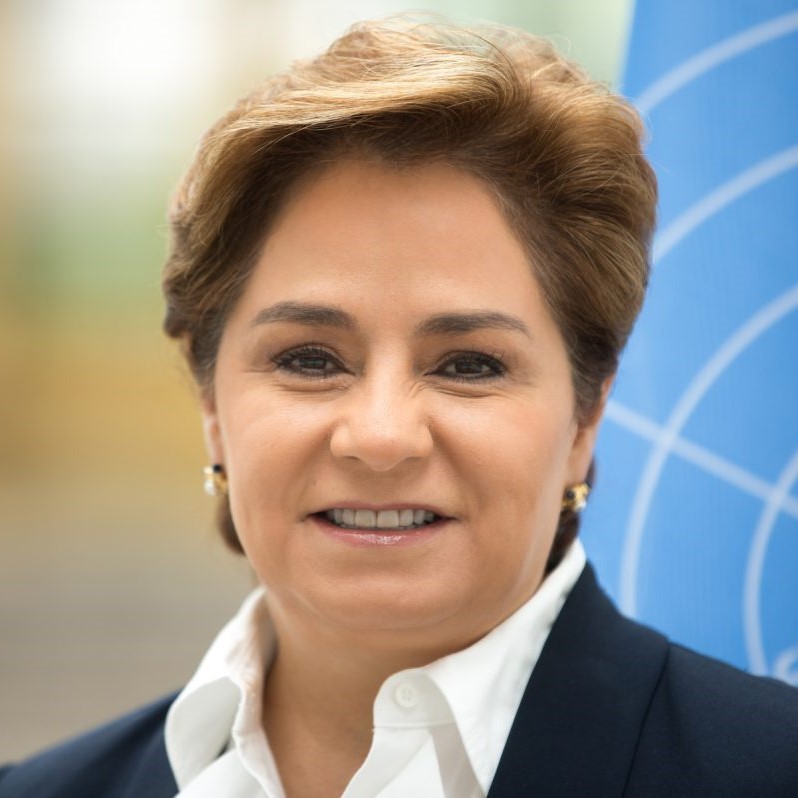
Patricia Espinosa
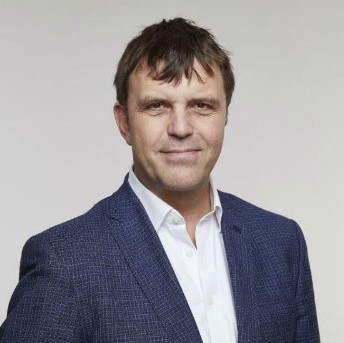
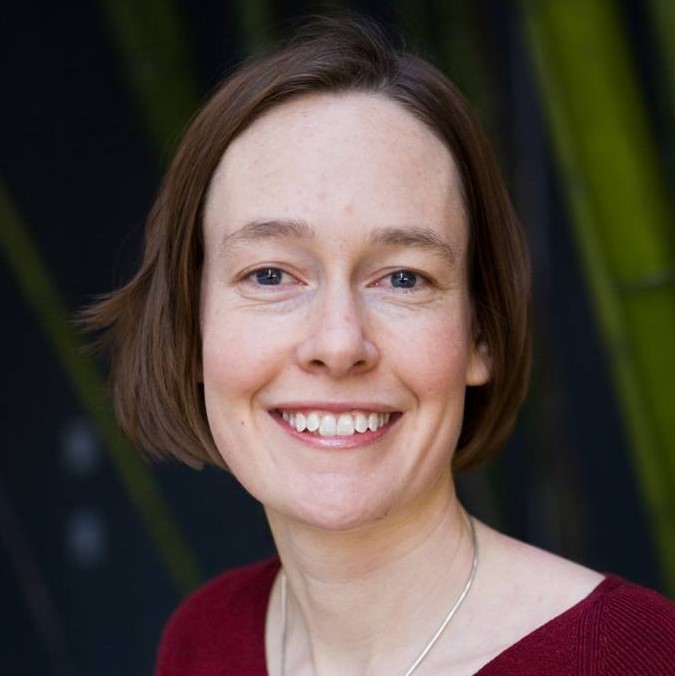


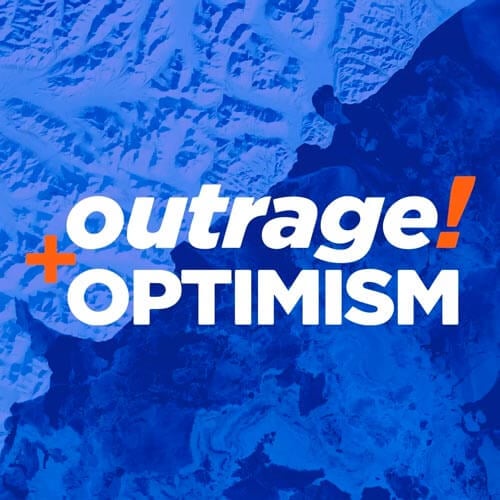
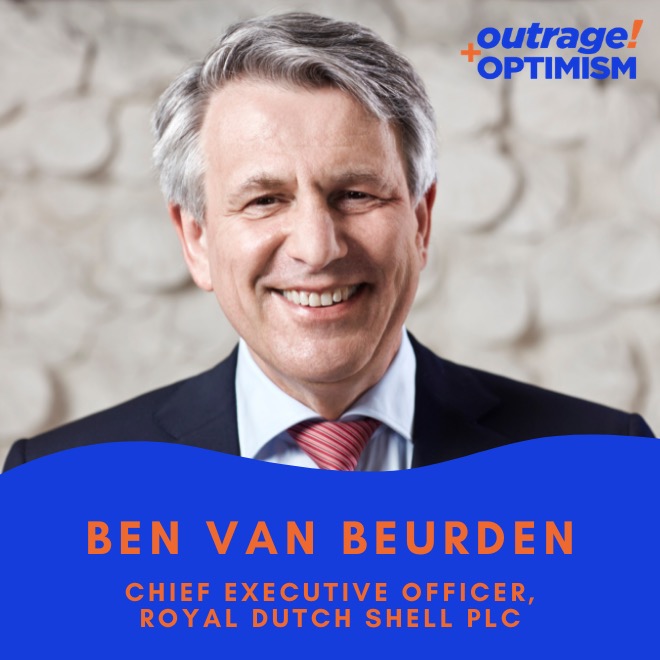
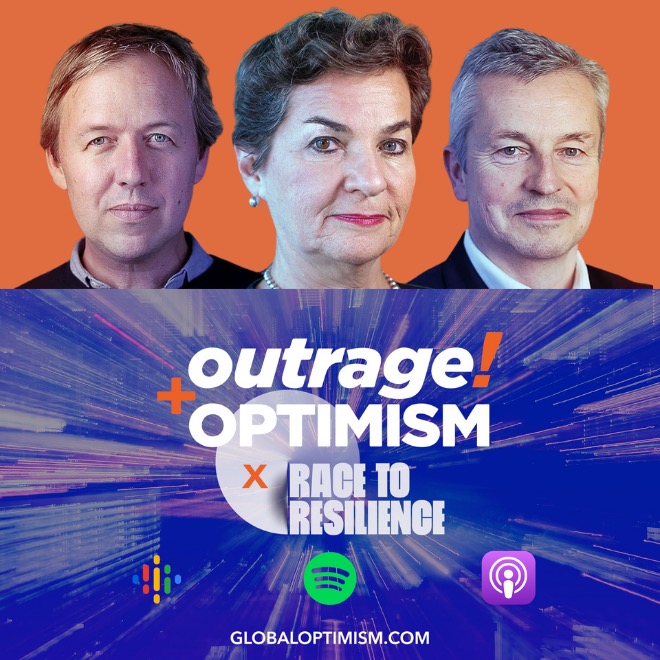
%20web%20optimised.jpg)
.jpg)
